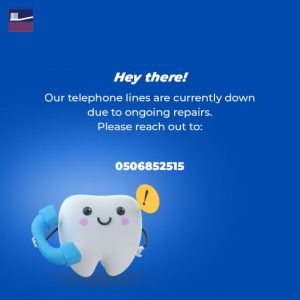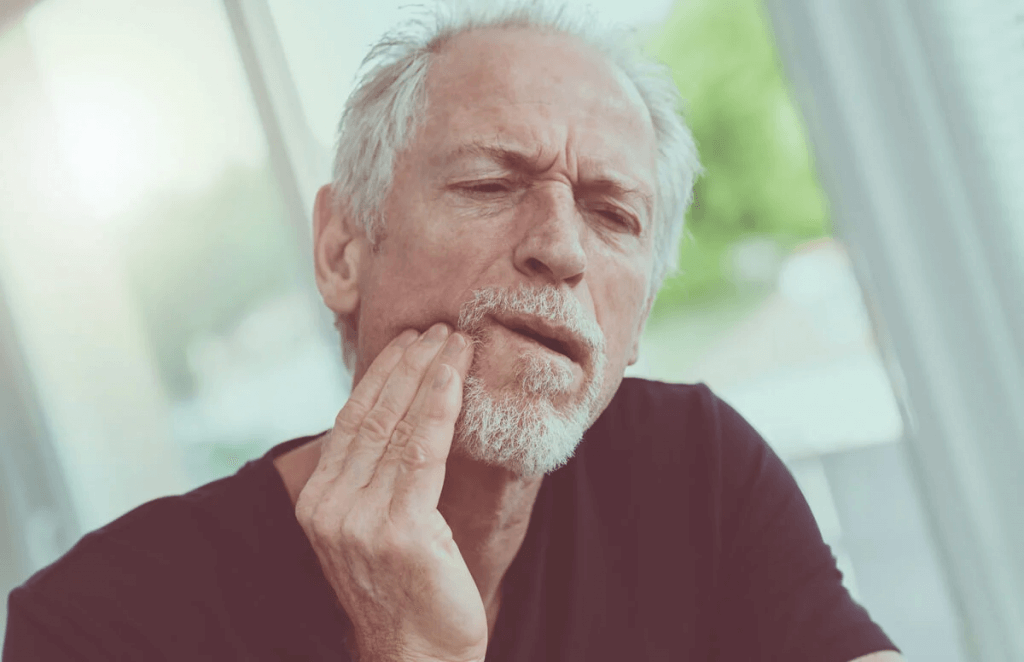
Ever felt pain in your lower jaw? Does your jaw click when you consume your favorite dishes? A throbbing pain that just won’t go away? Wondered what would be the cause of such? Jaw pain has been observed to radiate to other adjacent areas of the face which can be concerning to most. It usually evolves from sinus infections, toothaches, issues with the blood vessels or nerves, or other conditions.
There can be a great number of reasons why your lower jaw would be in pain. After reaching a certain age, your body’s healing responses would start deteriorating and some parts of the body would consequently be more vulnerable to pain and inflammation. Areas of the body that may be dormant for years can grow to be a problem as you get older. The jaw joint is a typical area for this to occur, most especially for the individuals that have gotten used to diets that consist of hard, chewy foods that involve having to clench and grind teeth.
Typically, we’d assume that jaw pain would root from gum disease or cavities; however, there are other possible reasons for that pain. Most types of jaw pain come as a result of temporomandibular joint disorder. In most cases, the pain wouldn’t require urgent medical attention; however, it could signify a more serious condition that would need treatment. It would be advised that anyone suffering from severe or persistent jaw pain should see a doctor for a diagnosis.
This article would be delving into the causes of lower jaw pain and the possible treatments to opt for.
Causes
The list below describes the potential causes of your lower jaw pain.
- Temporomandibular Disorders (TMD): The temporomandibular joint (TMJ) is a crucial part of the face that links your lower jaw to the skull, enabling the movement of the mouth where your upper jaw stays in position. Injuring this joint can lead to TMD, issues that would involve the jaw, neck, and face area. People often misunderstand that jaw problems would mean ‘having TMJ’. However, TMJ is the joint whilst TMD is the disorder. Symptoms would include jaw muscle spasms, headaches, neck aches, jaw or teeth pain, or difficulty in chewing or widening your mouth. The following are the possible sources of TMD:
- Grinding your teeth (bruxism): A lot of people actually grind or clench their teeth whilst asleep or during times of stress. This can eventually result in critical tooth damage and jaw pain. One of the symptoms of teeth grinding is having shortened teeth and appearing flat-looking on top. This phenomenon usually happens during sleep. It is possible to have a constant dull headache or a sore jaw, especially when waking up. A few of the risk factors of teeth grinding are stress and missing or crooked teeth.
- Myofascial pain syndrome: This is chronic pain that stems from the muscles or the sheaths that are around the muscle (fascia). This type of pain is usually located in the center of the jaw muscles. The 3 very obvious symptoms are facial pain, restricted jaw function, and hearing clicking or popping noises when your jaw is being used. A few of the reasons for having myofascial pain syndrome are arthritis, poor posture, or the source could be injury; however, most of the time, the reason would be unknown.
- Malocclusion (biting improperly): One of the symptoms of malocclusion include feeling difficulty or dull pain whilst chewing or speaking. Reasons for malocclusion may be trauma, heredity, thumb-sucking, impacted wisdom teeth or missing that leads to other teeth drifting.
Your next move for TMD
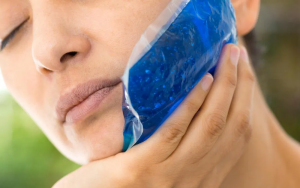 If you find that the reason for your pain is linked to temporomandibular disorders, there are a number of things you can do to alleviate the pain:
If you find that the reason for your pain is linked to temporomandibular disorders, there are a number of things you can do to alleviate the pain:
- Take an over-the-counter pain reliever such as ibuprofen. The relieving effects would most likely be temporary, but it can postpone the pain.
- It would be suggested to gently massage the sides of your face, cheeks, and jaw area.
- Place a cold compress on your jaw. It’s a known fact that the cold can reduce pain.
- Allow your neck muscles to exercise.
If you still find yourself suffering from jaw pain after trying out these alleviations, do approach our specialists at our dental clinic n diagnosing your pain.
Not TMD-Related
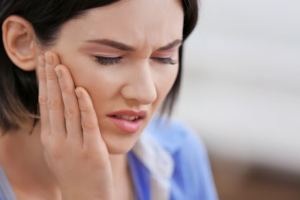
If you find that your pain is not related to TMD, the root of your pain could be more urgent. It’s completely possible that your jaw pain has nothing to do with your temporomandibular joint. If you have found that you’ve crossed out myofascial pain syndrome, teeth grinding, and improper biting, you may want to consider and read on about the other sources of jaw pain with your doctor.
- Jaw cancer: Cancerous cells can start around the area of the upper or lower jaw and can expand to the entire body. Search for numbness or pain in the jaw, persistent sores, lumps, or other abnormal growths outside of the jaw or within the mouth. One of the causes of jaw cancer would be smoking, chewing tobacco products, and having a history of it in the family.
- Tetanus: Although it is uncommon, tetanus is a bacterial infection also termed as ‘lockjaw.’ It is what it sounds like: the infection causes you to find it difficult in swallowing or widening your mouth because your jaw muscles would feel painful spasms. Clostridium tetani bacteria can enter the body through flesh wounds. Once it enters the body, it breeds a toxin that quickly goes around the body. In avoiding it, ensure you get your tetanus shots on time.
- Heart attack: If you find yourself suffering from acute jaw pain that unexpectedly arises, mostly found in the lower-left section of the jaw, it could be a sign of a heart attack. Keep in mind that the heart does not have pain receptors; hence, it ends up sending signals to other places. Two of the typical areas are up and down the left arm and jaw.
- Broken jaw: A few of the symptoms of a broken jaw include having trouble breathing, bleeding in the mouth, unanticipated misalignment of your jaw, and finding jaw movement difficult. One of the causes of a broken jaw would include whiplash or blunt trauma to the jaw.
Complications
If your lower jaw pain continues to persist without seeking medical attention, complications can surface. Complications would depend on the cause and other factors. The plausible complications that come with jaw pain would include:
- Dental complications
- Surgical complications
- Ongoing pain
- Infections
- Emotional distress
Treatments
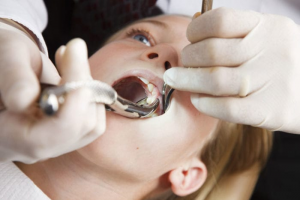
Treatment would depend on the root or source of the pain. A variety of options are available. The following remedies may be prescribed:
- Antibiotics would be advised if tests confirm a potential bacterial infection.
- Muscle relaxants.
- Oral, spray, or topical medications addressing pain relief.
- Steroid injections would be prescribed to reduce inflammation or swelling.
- Antiviral therapy may be recommended in treating viral infections such as herpes zoster.
Here are some dental treatment options that the dental clinics could offer in alleviating the pain of your lower jaw:
- Root canal treatment
- Extraction of tooth
- Heat or cold therapy
Do note that for more serious or complicated cases, surgery may be required in extracting any damaged bone or in rebuilding the jaw.
The best dentists offer a range of services carried out by our dentists in giving you healthier and better teeth which eventually rids of any jaw pain. Contact our experts today to learn more about any of our services and what’s best for your teeth.

